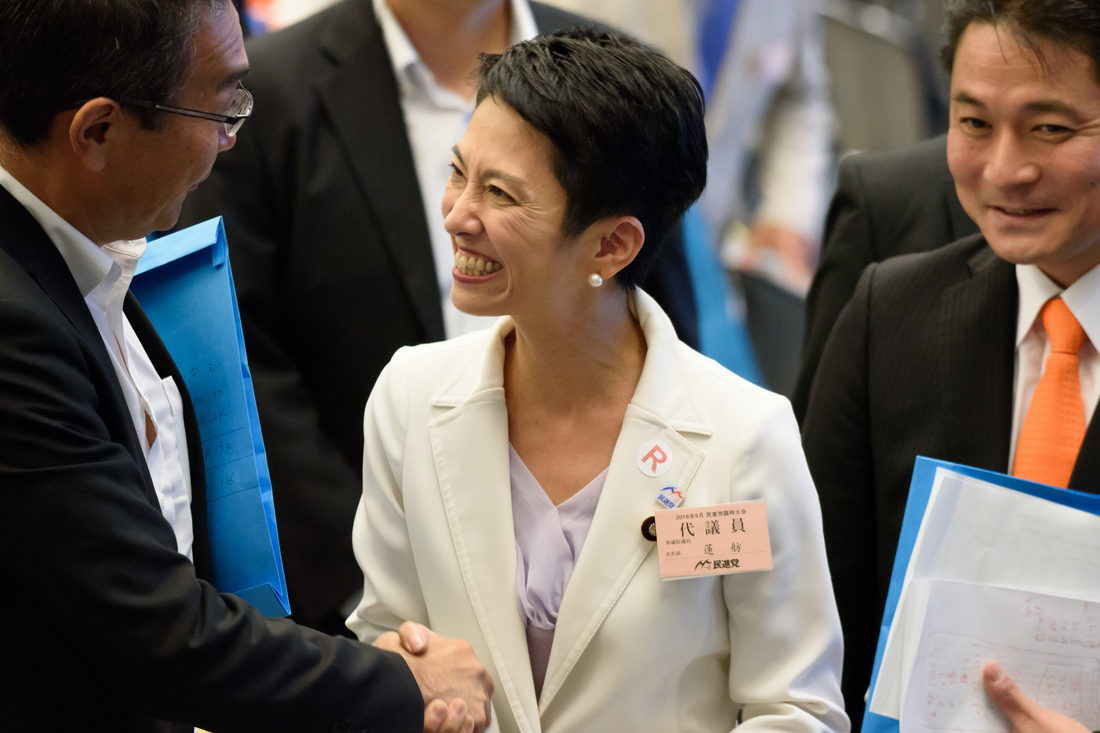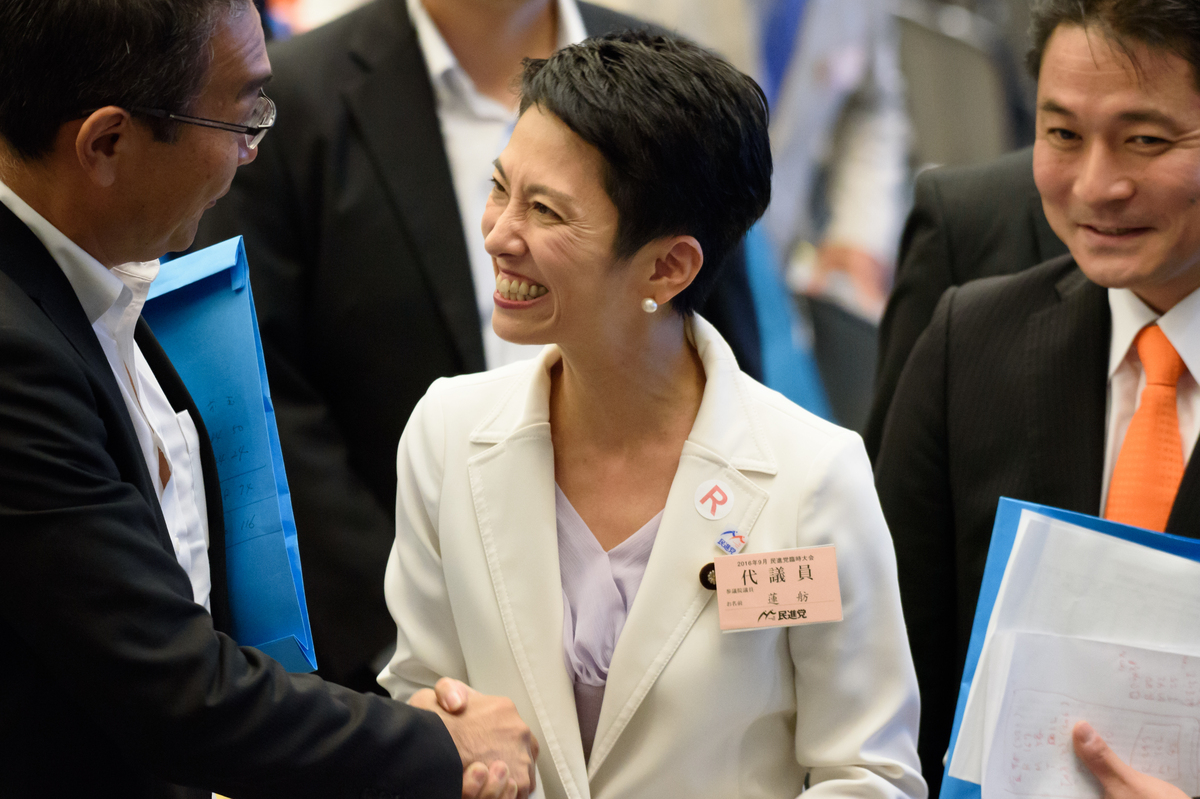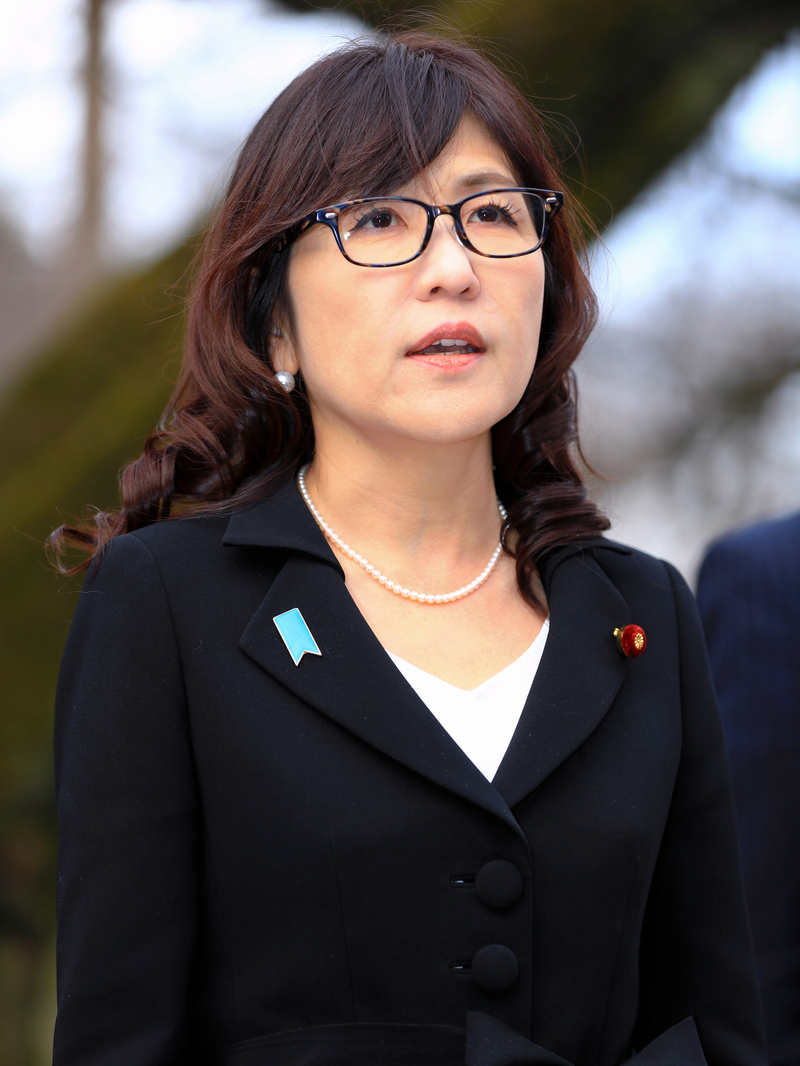Women Are Making Their Voices Heard In Male-Dominated Japanese Politics - NPR

Renho Murata, the leader of Japan's main opposition Democratic Party.
Bloomberg via Getty Images
hide caption
toggle caption
Bloomberg via Getty Images

Renho Murata, the leader of Japan's main opposition Democratic Party.
Bloomberg via Getty Images
For the first time in Japanese history three women of different political persuasions are in positions that could be stepping stones to the prime minister's office.
It's especially notable in Japan, where women's labor force participation remains among the lowest among developed nations, and gender roles are traditionally-defined.
"Women have not really been coached or mentored or encouraged to take on leadership roles," Kyoto University diplomacy professor Nancy Snow explains. "Also, women aren't allowed [culturally] to often show ambition, to sort of telegraph that."
Lack of childcare options in Japan — and the cultural pressure for women to take on household duties — means it's the moms here who drop out of work.

Japanese Defense Minister Tomomi Inada.
The Asahi Shimbun via Getty Images
hide caption
toggle caption
The Asahi Shimbun via Getty Images

Japanese Defense Minister Tomomi Inada.
The Asahi Shimbun via Getty Images
In official registries, married women to this day are listed, along with children, as part of a man's household. If they're single, part of their parents' household.
"I think it really goes back to the social hierarchy, the way that [Japan has] been for decades," Snow says.
Women make up 43 percent of the labor force in Japan — with more than half of them in part-time jobs. That's far below the 57 percent of working women in the U.S. Their roles in leadership are scant.
But in the political realm, signs point to change. Tokyo is now led by its first-ever female governor — Yuriko Koike. Japan's new defense minister, Tomomi Inada, is only the second woman to ever hold the role. And the opposition Democratic Party in Tokyo is for the first time led by a woman. She's a former journalist named Renho Murata.
"Twenty-three years ago when I was a newscaster," Renho tells NPR, "I interviewed an important member of the ruling party. He said to me, frankly, that he doesn't think wives should even speak about politics."
More than two decades have passed since that conversation, but today women still represent fewer than 15 percent of all seats in Japan's parliament, lower than the U.S., where women make up 20 percent of Congress. Renho says she's hoping to use her position to help get more women elected.
"We don't have enough women to raise their hands," she says. When asked what led her to raise her hand, she said she wanted to make change.
"It all began for me when I was raising two children. In a society that complains about not having enough children, the government wasn't offering any support. That made me want to become a politician," Renho says.
She made it and was a longtime member of parliament before her party elected her its leader last summer. But cultural biases persist. Renho's bra size was listed on her Wikipedia page. Mayor Koike was criticized during her race for wearing too much makeup. And top-down efforts to increase participation of women in higher levels of power have fallen short.
The government conceded last year that it wouldn't reach its goal of getting women in 30 percent of management roles by 2020.
Women are so outnumbered in business that the fact they're working at all is a story. It's dismaying, says Nancy Snow.
"I look forward in this century, and it may take awhile, for it to be just the case that a woman is in power in government here or in industry and she just happens to be a woman," Snow says.
For now the few women in power are proving to be rather fearless.
In a notable exchange with Prime Minister Shinzo Abe last month, Renho stood up against casino legislation that was rushed through Japan's parliament.
Facing the prime minister on the floor, Renho said, "You appear to lie as easily as you breathe."
Abe seemed to chuckle, but didn't respond.
Mari Yamamoto and Jake Adelstein contributed to this story.
Uncategorized
#Uncategorized


No comments: